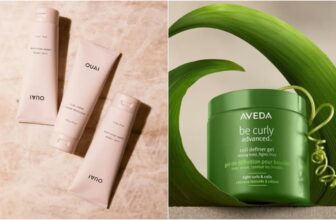The Importance of Scalp Health and How to Keep it Clean
You likely shower every day to remove bacteria, debris, and other foreign contaminants from the skin. Bathing in warm water with a good-quality soap will leave you feeling fresh and smelling good. However, when you neglect to wash your scalp correctly, it can lead to many problems. You may experience dandruff, scalp acne, or even blocked hair follicles. So what are the steps to achieve a healthy scalp?
Here’s an overview of the importance of scalp health and how to keep your scalp clean.
What Is Scalp Health?
The importance of scalp health and how to keep it clean revolves around maintaining a healthy scalp. A healthy scalp is free from ailments, including itchiness, redness, sun damage, excessive hair loss, irritation, and pain. You want to run your finger along your scalp without feeling patches of dry skin or painful bumps or sores, all without leaving an unfavorable scent behind on your fingers. The interruption of a healthy scalp can result from many different things, including your diet, hormones, lifestyle, and water intake.
Benefits of a Healthy Scalp
Your scalp determines the health of your hair. Each strand of hair has its own microbiome, protected from infections and other harmful bacteria. Without the necessary products and ingredients, your hair won’t grow properly. But with a healthy scalp, your hair will naturally remain healthy. You’ll also be free of scalp issues such as seborrheic dermatitis—dandruff and scaly patches—and atopic dermatitis, or eczema.
Symptoms of Poor Scalp Health
There are obvious signs of an unhealthy scalp, including:
- Burning
- Itching
- Hair loss
- Extreme dandruff or oiliness
- Scalp bumps
If you notice any of these symptoms, contact a dermatologist, who will determine the underlying issue of your scalp ailments and provide you with the necessary actions to take for recovery.
Achieving a Healthy Scalp
Taking the proper steps at home is necessary to achieving the healthy scalp you desire. If you’re worried about the products you use at home, find shampoo and conditioner for your hair and scalp that doesn’t contain sulfates, alcohols, fragrances, parabens, and lanolin; this will reduce reactions and dryness. Products that contain too many chemicals can damage your hair, leaving it stripped of moisture and feeling dry.
Washing your hair fewer times a week with a gentler washing method will allow your scalp to properly release oils to nourish the scalp, reduce itchiness, and leave your hair feeling softer. You can also up your omega-3, antioxidants, and probiotics to improve your internal organs and digestion, which in turn helps your scalp heal.






